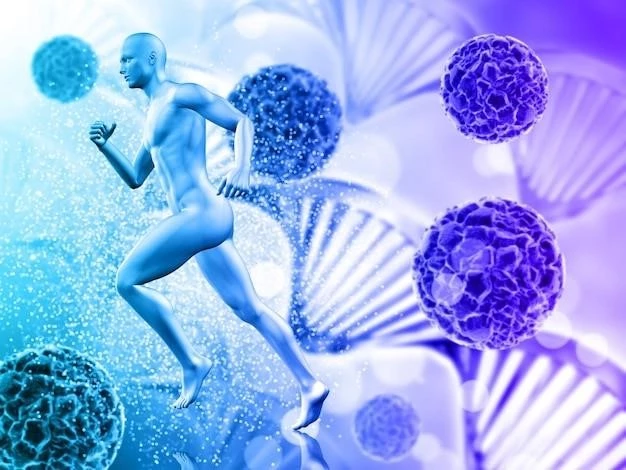Biotinidase deficiency symptoms vary from mild to severe and can affect the nervous system.
Early Signs
Early signs of biotinidase deficiency may include seizures, hypotonia, eczema, and developmental delay. These symptoms typically appear in infancy or early childhood. Prompt recognition and intervention are crucial in managing the condition effectively.
Progressive Symptoms
As biotinidase deficiency progresses, individuals may experience vision problems, hearing loss, and difficulty coordinating movements. Without proper treatment, severe complications like optic atrophy and hearing impairment can develop. Regular monitoring and lifelong management are essential to prevent worsening of symptoms.
Genetic mutations affecting the BTD gene lead to biotinidase deficiency, impacting biotin recycling in the body.
Genetic Factors
Genetic factors play a key role in biotinidase deficiency, with mutations in the BTD gene impairing the enzyme’s function. These mutations disrupt the breakdown of biotin, leading to its deficiency in the body. Early detection through genetic testing is vital for effective management and treatment of this inherited condition.
Enzyme Dysfunction
Enzyme dysfunction in biotinidase deficiency occurs when the biotinidase enzyme is unable to properly recycle biotin in the body. This dysfunction leads to biotin deficiency, causing various symptoms. Treatment options focus on providing supplemental biotin to compensate for the enzyme’s dysfunction and alleviate symptoms effectively.
Treatment for biotinidase deficiency often involves lifelong biotin supplementation to manage symptoms.
Biotin Supplementation
Biotin supplementation is the mainstay of treatment for biotinidase deficiency. This essential vitamin helps restore biotin levels in the body, supporting normal metabolic functions. Regular and adequate intake of biotin through supplements is crucial to manage the condition effectively and prevent complications associated with biotin deficiency.
Medical Management
Medical management of biotinidase deficiency involves close monitoring by healthcare professionals, regular assessments of biotin levels, and adjustment of biotin supplementation as needed. Additionally, healthcare providers may offer supportive care to address specific symptoms and provide education to patients and their families on effectively managing the condition in daily life.
Early screening and accurate diagnosis are crucial for detecting biotinidase deficiency in infants.
Screening and Diagnosis
Screening for biotinidase deficiency in infants involves blood tests to measure biotinidase enzyme activity levels. A confirmatory diagnosis is crucial for initiating early intervention. Healthcare providers may recommend genetic testing to identify mutations in the BTD gene. Timely diagnosis enables prompt treatment and better outcomes for infants with this metabolic disorder.
Early Intervention
Early intervention in biotinidase deficiency focuses on immediate initiation of biotin supplementation to prevent complications. Healthcare professionals work closely with parents to ensure proper dosing and adherence to treatment. Regular monitoring of biotin levels and developmental milestones helps track the infant’s response to therapy. Early intervention plays a critical role in managing the condition effectively and improving long-term outcomes.
A balanced diet including biotin-rich foods can complement biotin supplementation for managing this deficiency.
Foods Rich in Biotin
Including biotin-rich foods such as eggs, nuts, seeds, and mushrooms in the diet can help support biotin levels in individuals with biotinidase deficiency. These foods provide natural sources of biotin that complement biotin supplementation, contributing to overall nutritional balance and metabolic function. Consulting a healthcare provider or dietitian for personalized dietary recommendations is advisable for optimal management of this condition.
Dietary Guidelines
Dietary guidelines for managing biotinidase deficiency focus on a well-rounded diet that includes biotin-rich foods. It is essential to balance biotin supplementation with dietary intake to maintain optimal levels. Monitoring nutritional adequacy and following dietary recommendations can help individuals with this condition effectively manage their biotin levels and support overall health.
Genetic testing is crucial for confirming biotinidase deficiency and identifying specific mutations.
Importance of Genetic Testing
Genetic testing plays a vital role in diagnosing biotinidase deficiency by identifying specific mutations in the BTD gene. This testing helps determine the genetic cause of the condition, allowing for personalized treatment strategies and genetic counseling. Understanding the genetic basis of the deficiency is essential for predicting disease progression, guiding therapy decisions, and assessing the risk of inheritance in family members.

Testing Procedures
Testing for biotinidase deficiency involves analyzing the BTD gene through genetic sequencing to identify mutations that affect biotin metabolism. This procedure may include polymerase chain reaction (PCR) techniques and DNA sequencing to pinpoint genetic variations. Genetic counselors interpret the test results, providing insights into the specific gene changes responsible for the deficiency. Understanding the testing process is crucial for accurate diagnosis and tailored treatment plans.
Untreated biotinidase deficiency can lead to severe neurological complications over time.
Neurological Complications
Untreated biotinidase deficiency can result in progressive neurological complications, including vision and hearing impairments, seizures, developmental delays, and coordination difficulties. These long-term effects may impact overall quality of life and cognitive function. Early diagnosis and appropriate management are essential to prevent the advancement of neurological issues associated with biotinidase deficiency.
Skin and Hair Problems
Untreated biotinidase deficiency may manifest in skin conditions like eczema, seborrheic dermatitis, and fungal infections, along with hair thinning and alopecia. These long-term effects on the skin and hair can impact the individual’s physical health and self-esteem. Timely intervention with biotin supplementation and appropriate care measures can help mitigate skin and hair issues associated with untreated biotinidase deficiency.
Support groups and patient organizations offer valuable resources and assistance for individuals with biotinidase deficiency.
Patient Organizations
Patient organizations dedicated to biotinidase deficiency offer a supportive network, educational resources, and advocacy for affected individuals and their families. These organizations provide access to updated information, guidance on managing the condition, and opportunities to connect with others facing similar challenges. Joining patient organizations can help individuals better cope with the complexities of living with biotinidase deficiency and access valuable support services.
Counseling and Therapy Services
Counseling and therapy services play a crucial role in providing emotional support, coping strategies, and psychological well-being for individuals and families affected by biotinidase deficiency. Professional counselors and therapists can help address the mental health impact of living with a rare metabolic disorder, offering guidance on stress management, family dynamics, and navigating challenges related to the condition. Accessing counseling services is instrumental in enhancing overall quality of life and resilience in coping with biotinidase deficiency.
